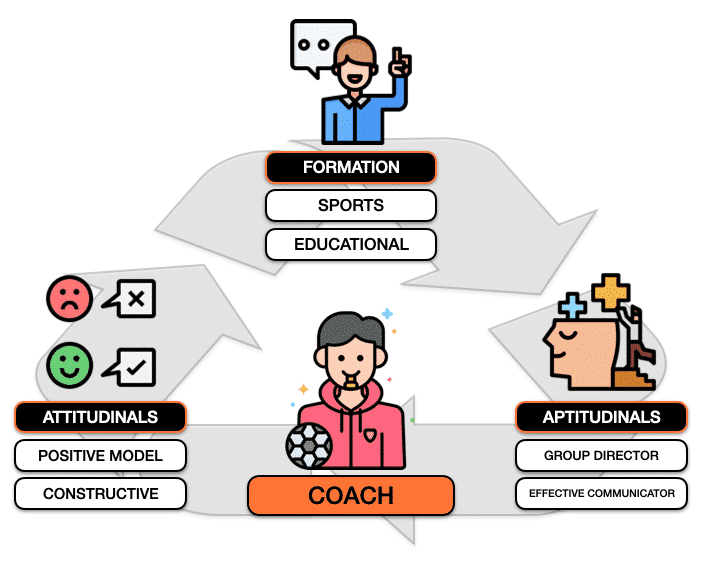The profile of a coach in the initiation period is fundamental for the development and training of young players. Unlike adults, children at this stage have specific needs and characteristics that must be properly addressed. The initiation coach must be aware of these differences and adapt to them in order to provide effective training.
According to various experts, an initiation coach should possess three essential attributes – knowledge of the sport, motivation and empathy.
These aspects are fundamental to guide young players in their learning process and sports training. It is important that the coach has had the right education, not only in technical skills, but also in interpersonal and social skills, as young people need to learn much more than just technique.
Coach education is a key factor in ensuring correct behaviour towards their athletes. Educational communication and the use of a teaching model are essential to educate youth athletes in sport. The academic training of the coach should not only focus on the technical aspects of the sport, but also on educational aspects.
The profile of the initiation coach should include the ability to focus on the player and his or her context, promoting the participation of all players, building on their prior learning, and designing tasks that foster motivation, learning and educational values. The coach must also understand that competition is a means and not the end of the training process and must be committed to his or her own continuous training.
In terms of the coach’s attitudinal characteristics, it is essential that the coach is a positive role model for the young players. They should focus on teaching sports skills, set realistic expectations, reward achievement, maintain a positive attitude towards effort and correct mistakes in a constructive manner. They should also encourage the active participation of players in activities and take their opinions into account.
In terms of aptitudinal characteristics, the coach must maintain a good image, be a strong team leader, an effective communicator and be committed to their ongoing education. They must also be able to relate to the players and generate an atmosphere of trust in the team.
The relationship between the coach and the players, as well as with the team as a whole, is essential for success in the initiation period. The coach must convey confidence through their body language and voice, communicate clearly and directly, and be consistent between their words and actions. They must also be able to actively listen to the players and encourage their participation in the learning process.
In addition, relationships with the young players’ families are important. The coach must involve the families in the training process and maintain effective communication with them. The creation of a learning community between the club and the families can be beneficial for the youth players’ development in sport.
In summary, the profile of an initiation coach should combine technical knowledge, pedagogical skills, a positive attitude and the ability to relate to both players and their families. Continuous training and commitment to the development of young people are key aspects in this developmental stage of sport.








